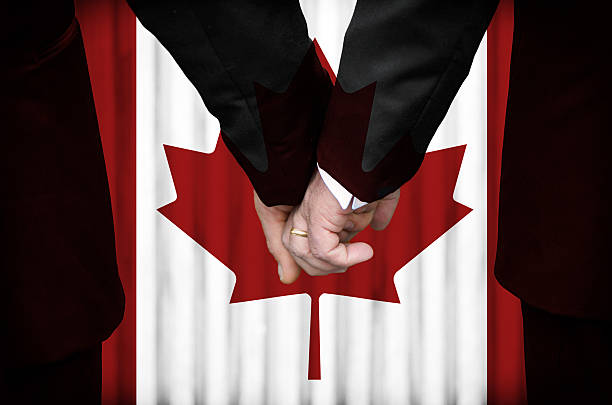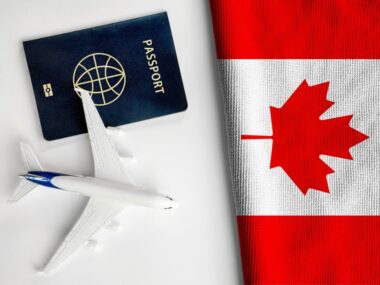Planning a move to Canada can feel overwhelming, especially when it comes to figuring out the costs involved. Knowing your financial needs upfront helps make the entire process smoother and less stressful. This guide breaks down all the essential expenses so you can prepare effectively. From government fees and flights to housing and daily living costs, every important detail is covered.
Advertisement
If you want clarity and confidence about your finances before making the big move, this article will provide the exact numbers and practical advice. Here’s everything you need to know about the exact budget you need to relocate to Canada in 2026.
How Much Do You Really Need to Move to Canada in 2026?
Relocating to Canada in 2026 requires smart planning and a clear budget. Whether you’re moving alone or with family, knowing the real costs upfront helps you avoid stress later. This guide gives you a full breakdown of every major expense from visas and flights to rent and daily living.

Costs vary based on your situation, but this article provides real numbers you can trust. No guesswork. No surprises. If you’re serious about moving to Canada in 2026, this is the exact guide you need to start your journey with confidence and the right financial preparation.
- Brief and direct opening sentence.
- Mention that costs vary by visa type, family size, and city, but you’ll get exact numbers.
- Promise clarity with no hidden costs.
Read: Remote Jobs as a Stepping Stone to Permanent Residency
Average Total Budget Range for 2026
To move to Canada in 2026, most people will need between CAD 15,000 and $40,000 depending on their family size and lifestyle. A single adult can expect to need at least CAD 15,000 to cover fees, flights, and the first few months of living expenses. A couple should budget around CAD 22,000–$30,000, while a family of four may need CAD 28,000–$40,000.
This includes essential costs like rent, visa fees, and initial settlement expenses. These numbers help you avoid being underprepared. If possible, add a buffer of CAD 2,000–$5,000 to cover unexpected costs or delays.
- Single adult: CAD 15,000 – $20,000
- Couple: CAD 22,000 – $30,000
- Family of four: CAD 28,000 – $40,000
State clearly: these include visa, travel, and settlement costs.
Cost Breakdown: What You’ll Spend and Why
Breaking your budget into clear parts makes it easier to plan. First, you’ll pay for your immigration application, which includes visa fees, medical exams, and background checks. Then come your travel costs, such as one-way flights and baggage. Once you land, you’ll need temporary housing, food, transport, and rent deposits.

Some costs, like proof of funds, aren’t spent but must be shown to immigration. Others, like language tests or credential evaluations, are upfront payments. This section helps you understand where every dollar goes, so you can plan smart and avoid running into money problems after you arrive.
A. Immigration Application Fees (Government Fees)
Express Entry (Federal Skilled Worker Program):
- Application: CAD 1,365 per adult
- Spouse: CAD 1,365
- Child (under 22): CAD 230 per child
Proof of funds (show, not spend):
- 1 person: CAD 14,690
- 2 people: CAD 18,288
- 4 people: CAD 27,297
- Note: Fees may change. Always check the [official IRCC website].
Credential Evaluation & Language Testing
- Educational Credential Assessment (ECA): ~ CAD 250
- IELTS or CELPIP test: ~CAD $300
Police Certificates & Medical Exam
- Police certificate: Varies by country (~ CAD 50–$100)
- Medical exam (panel physician): ~ CAD 250–$400 per adult
Flight and Travel Costs
One-way ticket to Canada:
- From Europe/Asia/Africa: ~ CAD 700–$1,500
- Family of four: ~ CAD 3,000–$4,000
Temporary Housing on Arrival
- Airbnb or hotel (first 2–4 weeks): CAD 1,200–$3,000 depending on city
Rent Deposit + First Month’s Rent
- 1-bedroom apartment in major cities (Toronto/Vancouver): CAD 2,000–$2,500/month
- Smaller cities: CAD 1,200–$1,800/month
- Expect to pay the first and last month upfront
Daily Expenses (First 2–3 Months)
- Food, transport, mobile plan, essentials: CAD 800–$1,200/month per adult
Read: Building a Financial Safety Net Before Moving Abroad
Optional but Useful Expenses
Some expenses aren’t required but can make your move easier. For example, paying for help with paperwork or immigration advice may save you time and avoid delays. Shipping extra luggage can be cheaper than paying for it on your flight. Buying proper winter clothes before arriving helps you settle faster, especially if you land in fall or winter.
Converting your driver’s license or signing up for a mobile plan right away can also reduce stress. While these extras aren’t essential, including them in your budget ensures a smoother transition and helps you feel more settled from day one.
- Settlement services (some are free, some paid)
- Luggage shipping: CAD 300–$1,000
- Local driver’s license conversion
- Winter clothes (if arriving late in the year)
Tips to Save Money
You can save thousands by making smart choices. Start by picking a smaller, more affordable city where rent and living costs are lower. Book flights early to get the best rates. Use free immigration resources instead of paid agents when possible. Many banks offer welcome packages for newcomers, including cash bonuses and free banking.
Look for shared housing to cut your rent costs in half during the first few months. Buying used furniture or cooking at home also helps you spend less. Planning ahead, comparing prices, and taking advantage of newcomer programs will keep your budget in check.
- Choose a smaller city (e.g., Halifax, Winnipeg)
- Book flights early
- Use newcomer bank packages (many offer $300–$500 bonuses)
- Look for shared rentals on arrival
How Much Should You Really Plan For?
Planning the right budget makes a big difference. It’s better to overestimate and have extra money than to arrive short on cash. A safe amount for a single person is around CAD 18,000–$22,000. For couples, aim for at least CAD 25,000–$32,000. Families should prepare about CAD 30,000–$42,000.
These numbers include visa fees, flights, initial rent, and daily living expenses. Don’t forget to keep an emergency fund for unexpected needs. Canada has great opportunities, but getting started can be expensive. Come prepared with the right budget, and you’ll feel more confident building your new life.
- Single adult: CAD 18,000–$22,000 to be safe
- Couple: CAD 25,000–$32,000
- Family of four: CAD 30,000–$42,000
- Round up your estimate. Having a buffer is better than being short.
Free Tools & Resources
Use online tools to make budgeting easier. The official IRCC website offers a cost estimator for immigration programs. Cost-of-living calculators let you compare Canadian cities and choose one that fits your budget. Currency converters help you track exchange rates in real time.

Several Canadian banks offer free newcomer packages with no-fee accounts and welcome bonuses. Some job sites also list wages and hiring trends by city, which helps you plan ahead. These free tools save time and money. They give you clarity and help you make smart decisions before, during, and after your move to Canada.
- IRCC Budget Estimator
- Currency converter
- Cost-of-living calculator by city
- Links to newcomer bank offers
Read: How to Build Credit Abroad as a New Immigrant
Moving to Canada in 2026 requires careful financial planning. This guide breaks down the exact budget you need to cover visa fees, travel, housing, and living expenses. Whether you’re relocating alone, as a couple, or with family, knowing these costs helps you prepare better and avoid surprises.
By understanding each expense and using simple tips to save money, you can make your move smoother and more affordable. Planning ahead with the right budget ensures you start your new life in Canada confidently and comfortably.


